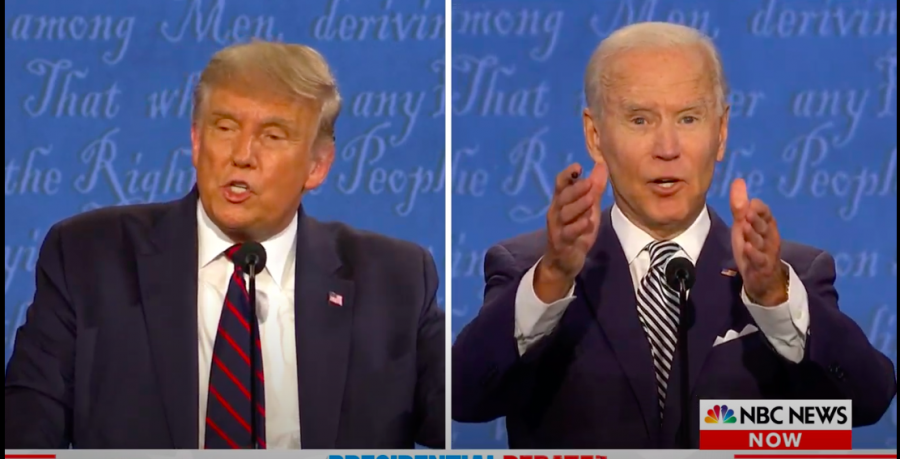Correction: an earlier version of this article stated that the memo issued by U-Health urged providers to delay cannabis recommendations to their patients until guidelines were released, upon clarification from a U-Health spokesperson we have corrected the article to reflect that the memo intended to provide guidance for practitioners who were unsure of how to proceed and not–as previously published–to urge practitioners to delay the process.
Although the Utah Medical Cannabis Act was signed into effect by lawmakers nearly one month ago, patients in the state that might benefit from this type of treatment may still face delays. University of Utah Health and Intermountain Healthcare issued memos advising physicians not to recommend medical marijuana to their patients yet.
The memo released by U-Health stated that many of the requests for medical cannabis recommendations made by patients were “framed as urgent.” The memo, however, urged medical practitioners receiving those requests to advise patients that it would be “a few months” before the institution would be able to provide qualifying patients with recommendations for medical marijuana.
Julie Kiefer, a spokesperson for University of Utah Health, stated that although the institution “began addressing the need for new protocols as soon as the Utah Medical Cannabis Act was passed,” they were still working on creating guidelines to help medical practitioners abide by the law. Kiefer stated that “since cannabis is still illegal under federal law and the infrastructure required by the Utah Medical Cannabis Act is not yet in place, we must first understand the law.”
Doug Rice is a licensed Utah medic, retired fire captain of United Fire Authority, vice president of the Epilepsy Association of Utah and spokesperson for Utah First Responders for Medical Cannabis. In a written statement to the Chronicle, Rice stated that the group is disappointed by the memo released by Intermountain Healthcare, in particular, because it provides inaccurate information to healthcare providers.
The Intermountain Healthcare memo states that the Medical Cannabis Act “goes into effect in July 2019.” The Utah Cannabis Act, HB 3001, was in fact signed into effect on Dec 3. While it is estimated that distribution of medical marijuana will not be available in Utah until 2020, the Affirmative Defense portion of the act allows patients with medical recommendations to avoid criminalization for possession of marijuana.
Rice criticized the response from one particular U-Health clinic as cited by the Salt Lake Tribune. Chirine Touati, who suffers from multiple sclerosis, requested a recommendation for medical marijuana from her U-Health neurologist and provided the clinic’s response (sent to her via email) to the Tribune. Rice’s criticism was directed to the portion of the email stating “there have been no clinical studies to document the safety or efficacy of [medical marijuana].”
While Rice believes that this statement is “completely inaccurate,” he stated that it sounds like the response of “someone within the clinic (as opposed to the hospital administration) giving a personal opinion, because we would expect a more reasoned and educated reply from someone higher up the food chain.” He went on to state that “in fact, the U of U has a Schedule 1 license and is actively studying cannabis legally.”
Rice believes that the delays put into place by these memos are unnecessary, he stated that “the Utah Medical Association has known about this for 18 months and hasn’t yet made any arrangements for their members. According to the publicity surrounding the replacement for Prop 2, much of HB 3001 was done with input from UMA and yet they aren’t ready for this.”
The Medical Marijuana Ballot Initiative — later enacted in Proposition 2 and evolving into HB 3001 — was initially filed 18 months ago, in June of 2017, by the Utah Patients Coalition. On Mar. 30 2018, after a poll indicated widespread support for the ballot measure, the Utah Medical Association released a statement urging voters to withdraw their signature.
Rice believes that Utah can do better for its patients. He stated that Utah First Responders for Medical Cannabis knows of “quite a few patients with various diseases that can benefit from cannabis if they get legal access immediately … including some stage 4 cancer patients.”
Kiefer stated that “patients dealing with various medical conditions are hoping to receive recommendations from their providers for medical cannabis. Some patients would like these recommendations as quickly as possible. It is not anticipated that Utah will have the infrastructure to distribute cannabis until the year 2020 so University of Utah Health is working diligently to develop guidelines to address these requests.”













Catherine Magee • Jan 7, 2019 at 10:46 pm
THIS IS COMPLETELY ILLEGAL!HOW CAN THE PEOPLE VOTE THIS INTO LAW AND HAVE THEM STOP IT ???
SO COMPLETELY WRONG!!!!
THAT IS TYPICAL UTAH !!!
Mark Fotheringham • Jan 3, 2019 at 9:13 am
Doug Rice is incorrect in his assessment of the Utah Medical Association (UMA). Ever since the compromise between opponents and proponents was reached, UMA has been researching and making available to its members credible research and information on the proper, proven uses of cannabis. It continues to develop educational materials, but this takes time. They do not suddenly appear just because a law is passed.
It is true UMA was vehemently opposed to Proposition 2, a bad initiative written to benefit the marijuana industry rather than patients. UMA is not opposed to the proper use of cannabis for medical purposes when proper safeguards are in place as is required of any other medicine.
It is interesting to note, if Prop 2 was allowed to stand as written, it would have taken much longer for real patients to get their needed cannabis than it will under the compromise legislation. There was never a presumption under either proposal that access would be immediate.